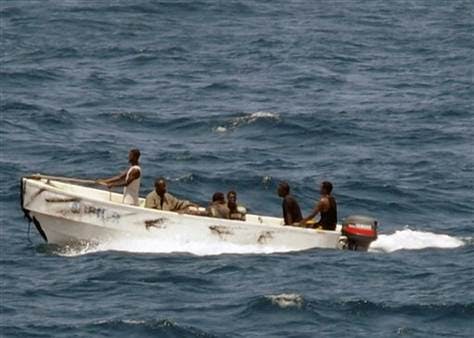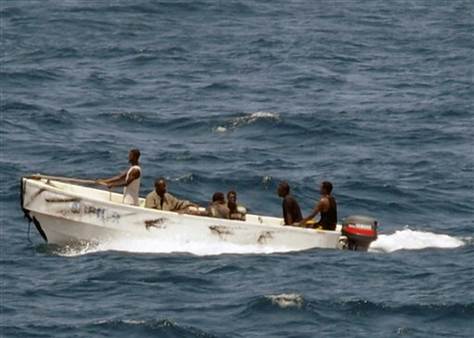Piracy: The MultiMillion Business
Jan 21, 2015
Story


On 22nd Feb 2011, Somali pirates executed the four American citizens they captured on 18th Feb 2011. It is believed that the pirates suspected the American army’s plan to rescue their captives.
On April 12th 2009, the American army rescued Richard Phillips who was the captain of the Maersk Alabama, a cargo ship that Somali pirates boarded on its way to Mombassa on 7th April 2009. This rescue mission gave pirates an experience to be extra careful with whom they deal with and how they negotiate. In the process of rescuing Captain Phillips, the American army shot three of the pirates and captured Abdiwali Muse alive.
Muse was a seventeen year old high school student who got involved in piracy in 2009. It was reported that some gang pirates recommended him to join since they earned a lot of money each time they hijacked a ship. Muse has been sentenced to thirty three years and nine months prison in New York.
Piracy in Somalia has been a growing concern off the coast of Somalia since 2005. It started as a result of angry fishermen whose fishing boats had been destroyed by foreign vessels that were fishing illegally near the Somali coast. Those fishermen hijacked some vessels and demanded ransom. Foreign vessels used to fish unlawfully near the Somali coast and deposit toxic materials on the coast ever since 1990 when the Somali central government collapsed.
The owners of the hijacked ships paid ransom for their safe release. Many unemployed young men became pirates since 2005 due to the millions of dollars each captured ship paid for its release.
Countries like Germany, Britain, and many others sent warships and spent hundreds of millions of dollars to fight pirates. Still pirates hijack ships far away from the Somali coast. The last incident was that of the four American citizens in Feb 2011.
Somali pirates are a threat not only to the international community and ships passing along the sea but also to Somali society. The large amount of money pirates receive causes inflation increasing prices of goods. The pirates consume alcohol and drive rashly causing tragic accidents. They also snatch girls, carry them in their vehicles and rape them.
One of the tragic incidents that I can recall in Galkayo Somalia was on 29th September 2010 when two gunmen knocked on a well respected homemaker’s door and took her at gun point. These two gunmen were reported to be her neighbours whom she had advised previously to leave piracy. They took her in to a discrete place, raped her and left her there. I tried contacting her for an interview but she refused due to social stigma. Luckily her niece agreed to talk to me.
Mostly it is the lack of job opportunities that drives youth to join the multimillion dollar business of piracy. This affects women as well.
Piracy was not born within the sea. It is based and begins on land. If the international community spends one-third of the money it invests in fighting piracy to establish vocational training schools for youth, things would change for the better. If youth acquire jobs skills that help them sustain their lives they would not dream of putting themselves at risk. The best way to solve a problem is to fight its root cause and not its effects.
As a professional and a university graduate, I believe that youth in Somalia need vocational skills to sustain their lives. Once they acquire those skills they can create jobs for themselves by starting small business enterprises. They can work and sustain themselves even if they do not get employed by non-governmental organizations or intergovernmental organizations. Most agencies prefer to hire candidates who studied outside the country and everyone can not afford to go abroad to study university.
Equipping youth with job skills is the only win-win approach to eliminate piracy and everyone will benefit from this. Youth who acquire vocational skills can sustain their lives. Other members of the community will also live happily without the fear of pirates and the international community would be relieved from the threat and tension of pirates.
This article is part of a writing assignment for Voices of Our Future, which is providing rigorous web 2.0 and new media training for 30 emerging women leaders. We are speaking out for social change from some of the most unheard regions of the world.




